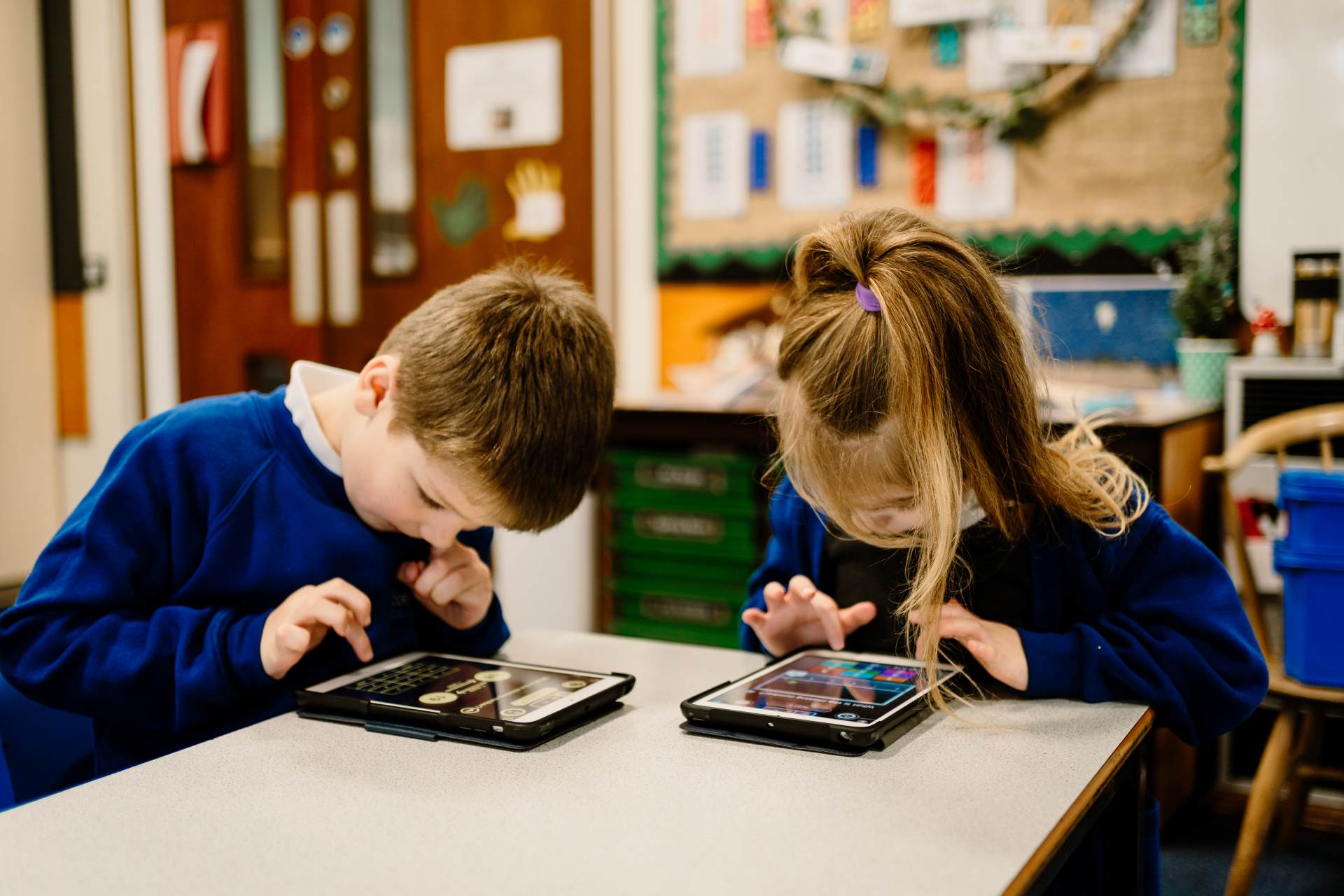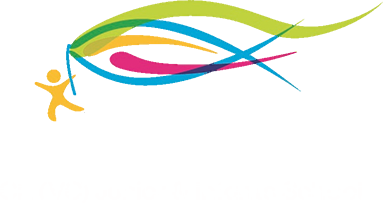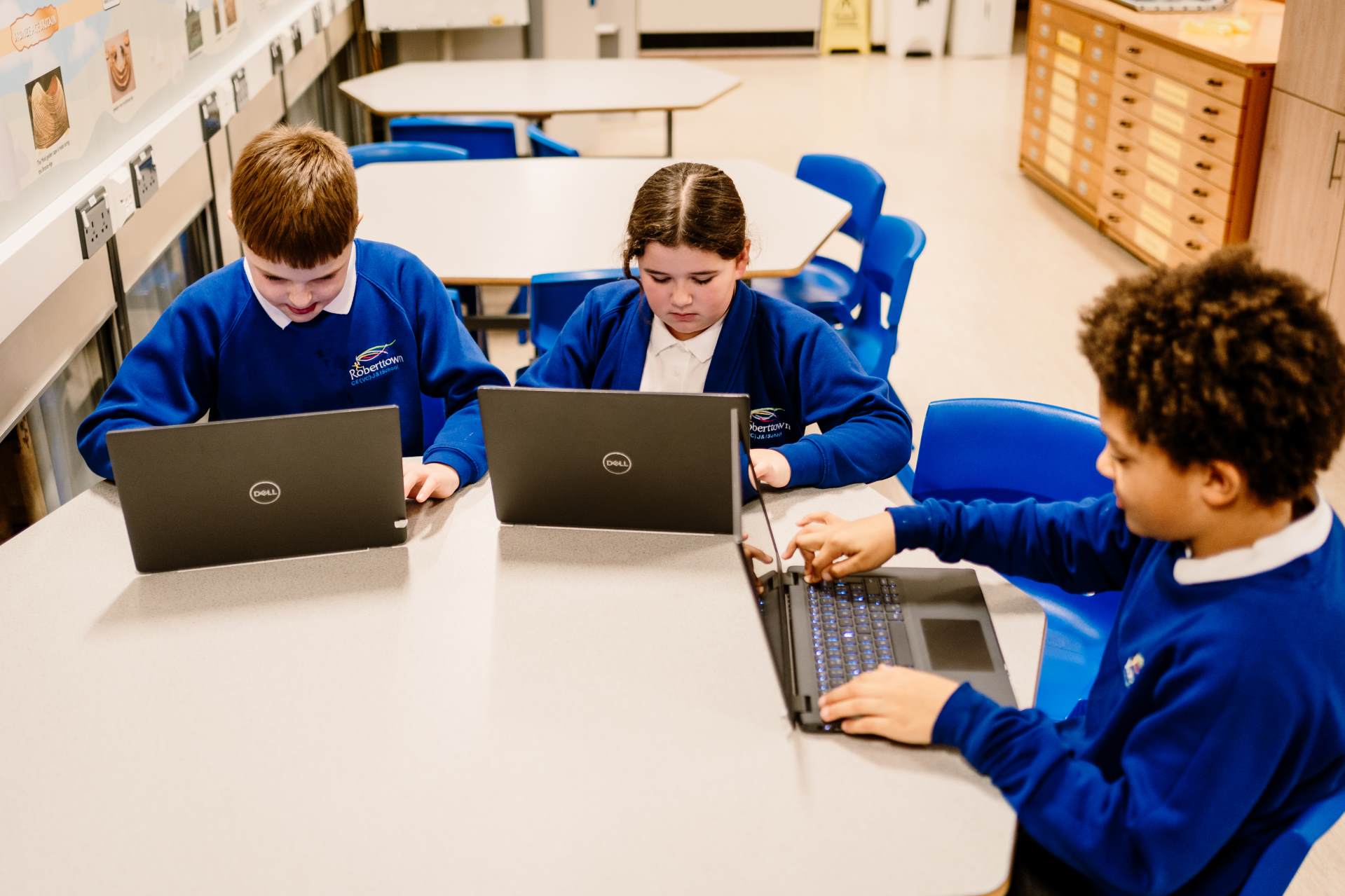Computing
Intent: Our Subject Vision
At Roberttown the use of information and communication technology and computing is delivered through all aspects of our teaching and learning; a subject that not only stands alone but is woven and should be an integral part of all learning. Technology is forever changing and advancing and is a significant part of everyone’s daily life. We believe children should be at the forefront of modern technology, with a thirst for learning what is out there and have access to a robust computing curriculum. We want our children to love computing and to have no limits to what their ambitions are and grow up wanting to be software engineers, video game designers, web developers or IT consultants.
The children might not yet know what job or profession they want to do when they are older, some of their jobs will not have even been created yet, but we do know there is a strong possibility it will involve technology. Through the study of Computing, our aim is to prepare the children for the future with the fundamental knowledge, skills and opportunities that will equip them for an ever-changing digital world.
Computing within our school can therefore provide a wealth of learning opportunities and transferrable skills explicitly within the Computing lesson and across other curriculum subjects. Children must be taught in the art form of ‘Computational Thinking’ to provide them essential knowledge that will enable them to participate effectively and safely in the digital world outside of school and education.

Implementation: Our Approach
Children are taught to use desktop computers, laptops, iPads, programmable robots and to acquire, organise, store, manipulate, interpret, communicate, and present information.
In KS1, Digital Literacy is a priority as the children must first be able to ‘use technology purposefully to create, organise, store, manipulate and retrieve digital content,’ before they can begin to access any computer science such as ‘Understanding how algorithms are implemented in programs’ or ‘Creating and debugging simple programs.’ This allows for developing the basic IT skills required to access the rest of the curriculum. Strong IT skills at the end of Key Stage 1 are a focus. Basic skills such as ‘how to use a mouse correctly’ or ‘how to open/save files’ are not included on the National Curriculum but is still taught in Early Years and KS1.
In Key Stage 2 the children will ‘design, write and debug programs that accomplish specific goals, including controlling or simulating physical systems; solve problems by decomposing them into smaller parts. They will use sequence, selection, and repetition in programs, use logical reasoning to explain how some simple algorithms work and correct errors in algorithms and programs. Children will be taught to ‘understand computer networks, including the internet, and the opportunities they offer for communication and collaboration. They will use search technologies effectively, learn to appreciate how results are selected and ranked, and be discerning in evaluating digital content.’ Children will be taught to ‘select, use and combine a variety of software (including internet services) on a range of digital devices to create a range of programs, systems and content that accomplish given goals.’
British values are taught through computing by promoting tolerance, mutual respect, and cultural diversity. This links to our frequent online safety lessons in each year group. We want our children to be respectful and accountable when being online to ensure that they are users and programmers of information and communication technology for positive purposes and that they know their behaviour online can affect the feelings of others.
All classes are allocated a weekly one hour lesson with access to devices such as iPads and laptops. In addition to this, teachers will supplement their delivery of lessons with technology when required. Weekly computing lessons are taught through the use of the Kapow scheme.
Further Information
Computing rationale Computing long term plan



